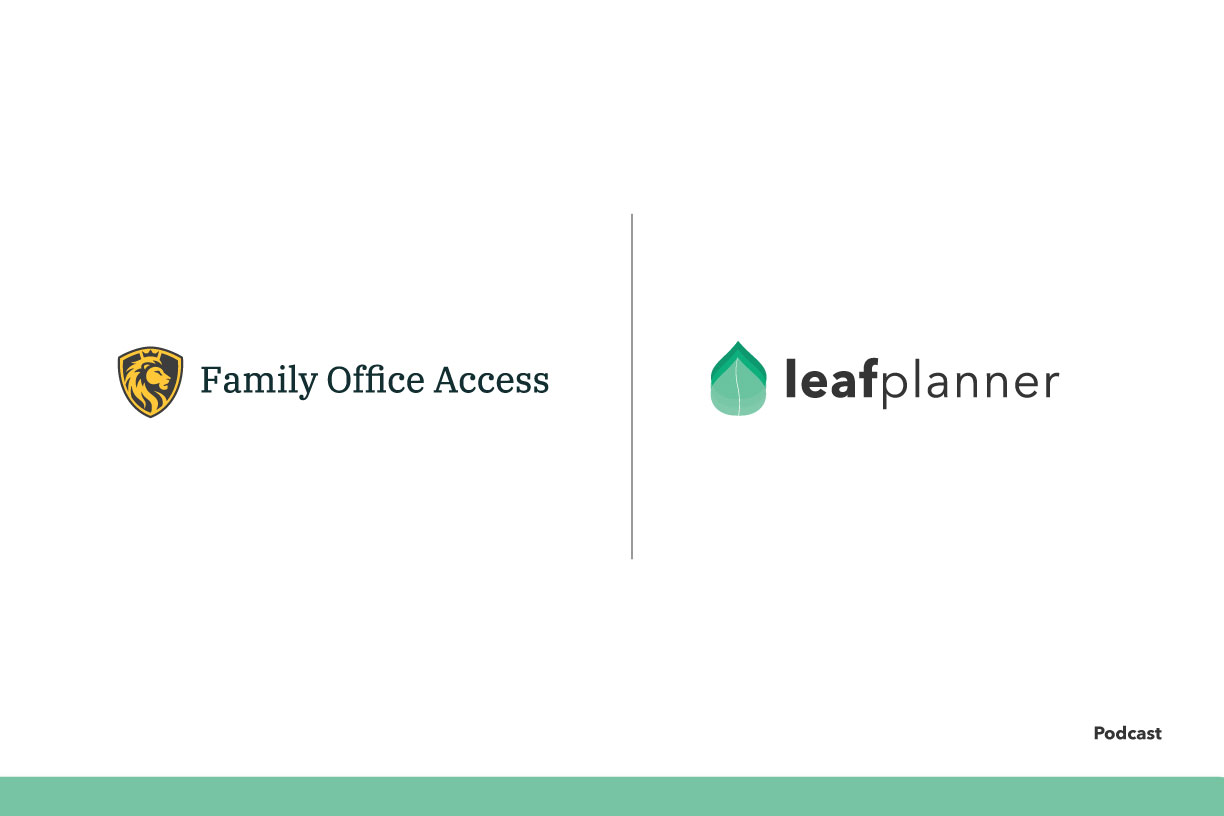Managing a family enterprise, particularly for high-net-worth individuals (HNWIs), presents unique challenges. The complexity can be overwhelming, from multi-generational dynamics and extensive trust structures to managing multiple legal entities and philanthropic endeavors. Adding to this complexity is the crucial task of effectively communicating these intricacies to the rising generation. This article explores the critical aspects of family enterprise management, the role of advanced tools like leafplanner in simplifying these challenges, and strategies for ensuring clear communication across future generations.
1. Generational Dynamics
Family enterprises often span multiple generations, each with varying perspectives, values, and financial goals. Managing these diverse viewpoints is essential to create a cohesive strategy for the future.
Why it Matters: Effective multi-generational management requires aligning different generations’ interests while preserving family harmony. Understanding and addressing each generation's unique concerns and aspirations is essential for formulating an effective strategy for long-term success. To bridge generational gaps, fostering open dialogue and providing education on financial and estate matters is crucial. Engaging the rising generation makes them participants in defining the family’s values and goals, better preparing them to be stewards and responsible owners of the family’s wealth and legacy.
2. Multiple Adult Households
Managing several adult households within a family can increase complexity, as each household may have distinct financial priorities and needs. For those in the “sandwich” generation, it may mean managing ‘up’ to the senior generation, as well as ‘down’ to the rising generation.
Why it Matters: Balancing individual household and generational goals with the family’s overall strategy requires careful coordination, this ensures that each household’s needs are met while maintaining a unified family vision and estate efficiencies across generations. Transparent communication about the family’s financial strategy and household management can prevent misunderstandings, inefficiencies, and even unseen estate tax issues. Involving the rising generation in family discussions and decision-making processes helps them appreciate the broader financial picture and their role within it.
3. Estate Planning and Family Members
The complexity of estate planning grows with the number of family members, generations, and other individuals involved. Each additional person and generation introduces new considerations for planning, blind spots, and multi-generational success.
Why it Matters: Estate planning must balance diverse interests and needs to minimize disputes. Crafting a plan that achieves a family’s goals across generations requires careful consideration and input from all family members. Clear, ongoing discussions about estate planning can demystify the process and manage expectations.
4. Operating Businesses
Family-owned businesses add layers of complexity, especially regarding ownership structures, succession planning, and buy/sell agreements. The involvement of outside shareholders can further complicate matters.
Why it Matters: Effective business management requires strategic planning for ownership transitions and succession. Ensuring that the business's goals align with family values and goals is crucial for its continued success. Involving younger family members in the business early on can give them practical experience and a better understanding of its operations, and policies about joining a family business can help avoid conflict later. Open discussions about business succession plans can also prepare them for future leadership roles.
5. The World of Trusts
Trusts—whether revocable, irrevocable, insurance, or charitable—come with unique administrative and legal requirements, contributing to the complexity of estate planning.
Why it Matters: Managing multiple trusts involves navigating various compliance issues and administrative tasks. Understanding the purpose and requirements of each trust is essential for effective management. Mismanaged trust administration can lead to dramatic, unforeseen estate and income tax consequences.
6. Legal Entities
Legal entities like LLCs, partnerships, and corporations are often used to manage family wealth and business interests. The complexity increases with the number of entities, particularly regarding governance and compliance.
Why it Matters: Proper governance and adherence to legal and tax regulations are critical for managing numerous entities. Effective oversight requires a comprehensive approach to documentation and compliance.
7. Philanthropic Efforts
Managing philanthropic entities such as private foundations and donor-advised funds introduces its own complexities. Each type has distinct operational guidelines and regulatory requirements.
Why it Matters: Effective management of multiple philanthropic entities requires careful organization and adherence to diverse regulations. This complexity highlights the importance of meticulous planning and reporting. Educating the family about the family’s charitable goals and the operational aspects of philanthropic entities can help them carry on these traditions.
8. Key People in the Family Enterprise
In any family enterprise, key figures such as advisors, trustees, and other critical personnel play pivotal roles. Each individual contributes to the overall management and decision-making processes, adding another layer of complexity.
Why it Matters: Effective management of a family enterprise involves overseeing the various financial and legal elements and coordinating with key individuals who provide expertise and guidance. This includes financial advisors, legal counsel, accountants, insurance, and other specialists contributing to the enterprise's success. Clear communication about the roles and contributions of these key individuals is essential. Regular updates and meetings with these professionals can also involve the rising generation in the ongoing strategic planning.
Simplify the Family Enterprise with leafplanner
Navigating the complexities of family enterprises involves a multifaceted approach to financial, legal, and relational intricacies. Tools like leafplanner provide valuable support by offering a centralized platform to manage and streamline various aspects of family wealth and estate planning.
leafplanner helps transform complexity into clarity, ensuring efficient management across generations. Integrating and simplifying information enables families to maintain organization and make informed decisions. Moreover, communication with the rising generation is crucial for ensuring they are prepared to understand and manage these complexities. By fostering transparency and involving younger family members in the process, families can preserve their legacy and ensure a smooth transition of responsibilities.
Contact us today to learn more about leafplanner and how our platform can support your family or clients.






